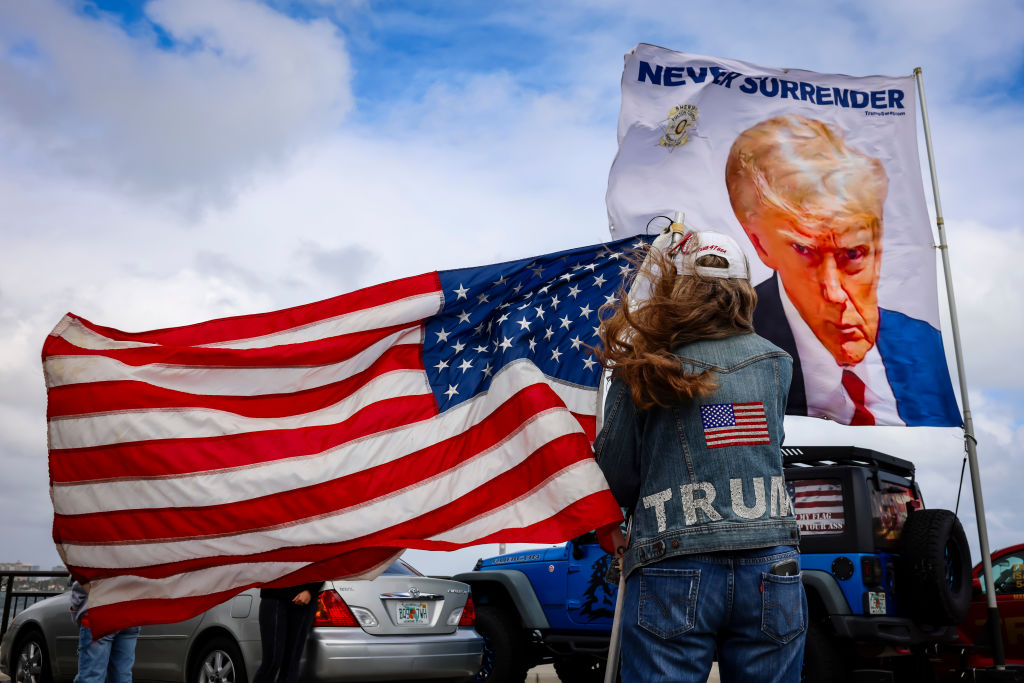The Republicans may have won in November, but what that victory means in terms of policy remains fluid, especially with a figure as protean as Donald Trump at the helm. During his first term Trump supported a ban on TikTok, and in April Congress passed a law that would prohibit the platform unless it was sold by its parent company, ByteDance. But the President-elect has now raised doubts about the ban, and his legal team has this week filed a brief with the Supreme Court asking it to put a hold on that law until he enters the White House in January. Written by Trump’s nominee to be the next solicitor general, this legal filing reveals another tension between MAGA populists and techno-libertarians.
Populists and nationalists have long pushed for a TikTok ban. They have accused ByteDance of having ties to the Chinese Communist Party and have worried about the app’s potential for censorship. They have also raised concerns about TikTok’s data-collection protocols. As Missouri Senator Josh Hawley said in an interview earlier this year, “The app collects way more information than it needs to to feed its algorithm, and that information is available to the Chinese Communist Party upon request […] I don’t think we want Americans’ text messages to be read, or their geolocations to be available to the CCP, so it can build a dossier on every American.”
When, in 2020, Trump issued an executive order that would have banned TikTok, he cited some of those very same concerns about data and national security. For populists, the battle over TikTok is about great-power conflict and checking the reach of digital conglomerates.
Trump’s newfound allies in tech instead see the TikTok controversy through the lenses of freedom of speech and global commerce. Elon Musk said in April that banning the platform “would be contrary to freedom of speech and expression. It is not what America stands for.” Of course, these libertarian principles might sometimes intersect with business interests: at least one major Republican donor has a significant financial stake in ByteDance, and a forced divestment or a ban could seriously impact that investment.
The President-elect’s legal filing recapitulates many of these tech arguments. It claims that TikTok divestment has profound implications for the “free speech interests of over 170 million ordinary Americans”. It also alludes to US tech titans’ own financial incentives to have governments take a hands-off approach to tech. The legal brief warns that a TikTok ban could set a “dangerous global precedent” that might encourage other nations to start banning or otherwise regulating foreign-owned social-media apps.
This filing also reveals Trump’s love of maximal flexibility. It purports to take no stand on the merits of the TikTok law itself and also recognises that there are real national security concerns at stake. Instead, Trump’s team asks for a stay in order for him to use his “consummate dealmaking expertise” to “negotiate a resolution to save the platform”. Trump has himself become a viral figure on TikTok, and perhaps he hopes that striking a deal could meet the demands of both populists and techies. For instance, he could help broker the sale of TikTok to a third party not headquartered in China or allow the app to continue to operate in the US in exchange for other policy concessions from Beijing.
Managing a heterogeneous political coalition is often more about papering over differences than facing contradictions head-on, and the right kind of TikTok deal could potentially square the circle. Nevertheless, there is an inherent tension between a populism that uses the national interest to guide economic policy and a libertarianism that views all government regulation as just another step down the road to serfdom. It will take some political nimbleness to strike that balance.
What’s more, Republicans risk political peril if they fail to do so. Five years ago in the UK, the Tories seemed to be sailing towards a working-class realignment, but they crashed on the shoals of a libertarian-inflected “global Britain”. If they hope to avoid a similar shipwreck, Republicans cannot afford to ignore populist claims on behalf of the nation.











Join the discussion
Join like minded readers that support our journalism by becoming a paid subscriber
To join the discussion in the comments, become a paid subscriber.
Join like minded readers that support our journalism, read unlimited articles and enjoy other subscriber-only benefits.
Subscribe